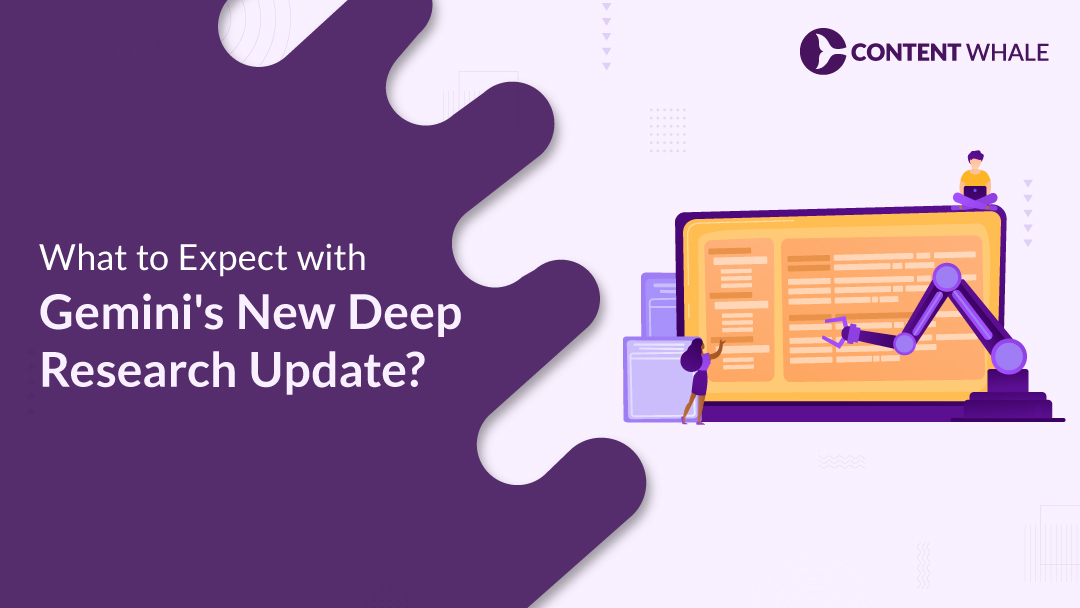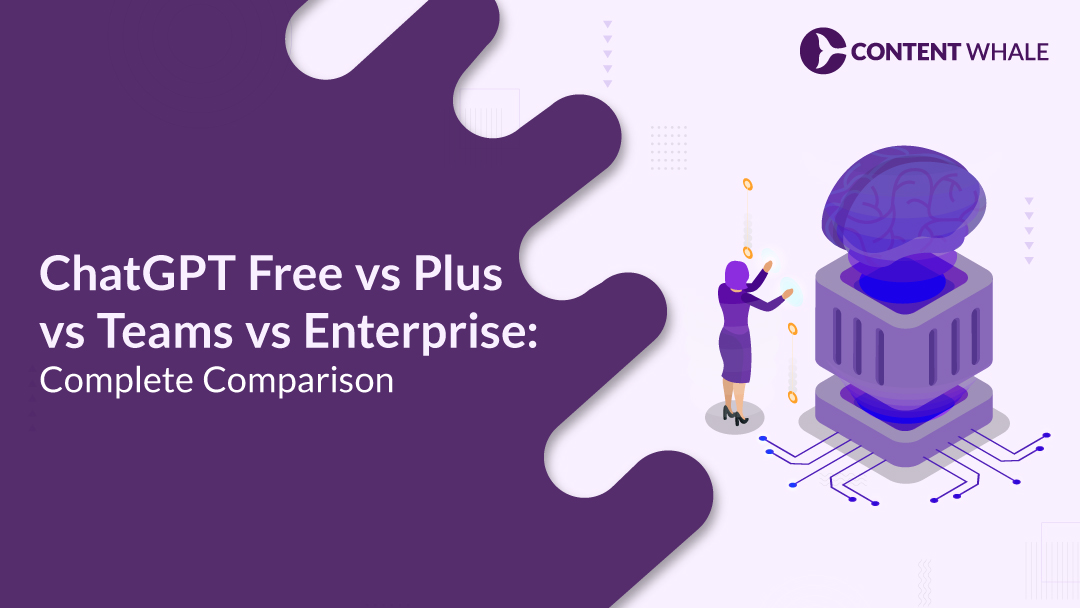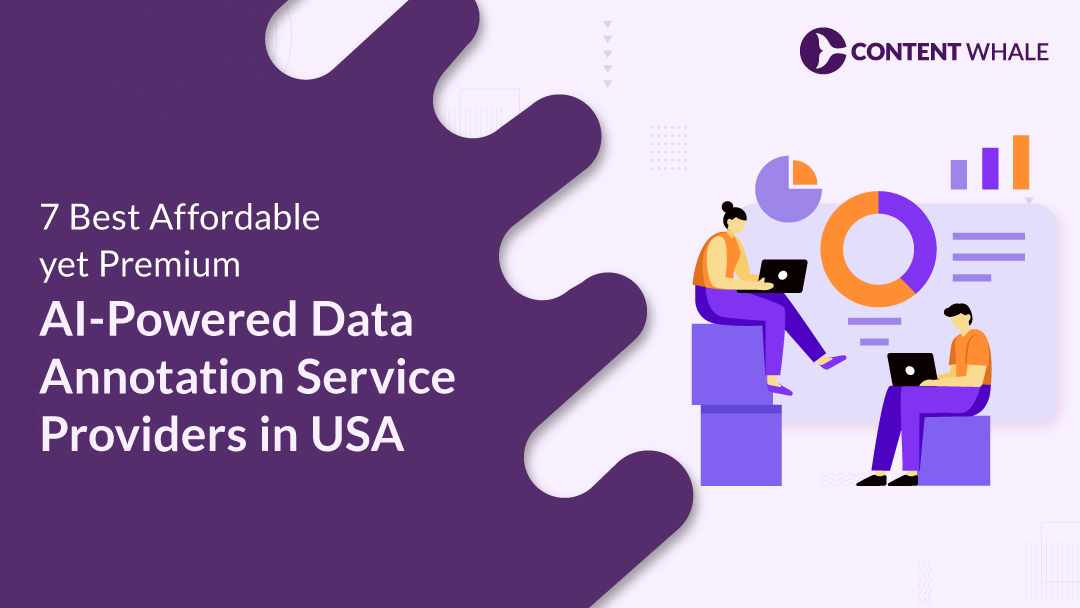Google’s latest advancement in AI, the Google Gemini Deep Research feature Update, is set to change how users tackle complex research tasks. This innovative tool simplifies the process of gathering and synthesizing information from multiple sources, providing users with a clear, comprehensive summary instead of the usual list of search results.
The Google Gemini update promises more efficient, accurate, and reliable research outcomes, especially for tasks that require in-depth analysis.
This feature doesn’t just enhance search—it transforms it by reducing the time and effort needed to compile and understand large volumes of information.
Gemini AI’s capabilities highlight the future of how professionals across various fields will access and use information.
1. Understanding Google Gemini’s Deep Research Feature
The Google Gemini Deep Research feature redefines the approach to complex research tasks. Integrated into the Gemini AI platform, it uses advanced AI and machine learning techniques to collect, analyze, and synthesize information from multiple sources across the web. Unlike traditional search tools that provide a list of links, Gemini’s deep research tools aim to deliver a comprehensive, well-organized report, making it easier to understand complex subjects quickly.
a) How It Works:
- Data Collection: Gemini scours the web for relevant information, including detailed articles, studies, and even subpages that are not easily accessible through standard search results.
- Information Synthesis: The AI processes this data, distilling the most relevant information into a cohesive summary tailored to the user’s specific query, covering all key aspects.
- Output Generation: The synthesized information is then presented in an easily digestible format, such as a Google Doc, complete with sections, subheadings, and even action plans if required.
2. Enhancing Decision-Making with Deep Research
The Google Gemini Deep Research feature revolutionizes decision-making by streamlining how users gather and analyze information. Traditionally, conducting comprehensive research involved manually sifting through various sources, which was time-consuming and often overwhelming. With Gemini’s deep research tools, this process becomes significantly more efficient.
c) Key Benefits:
- Comprehensive Data Synthesis: Gemini collects and synthesizes information from multiple sources, offering users a well-organized, easy-to-understand report. This ensures that all relevant details are included, allowing for more informed decisions without navigating numerous web pages.
- Practical Use Cases: For example, a business owner researching the legal requirements for opening a new location can receive a cohesive document covering permits, costs, and timelines. This enables users to focus on decision-making rather than data gathering.
- Enhanced Accuracy and Efficiency: AI-powered research tools cross-reference multiple data points to eliminate inconsistencies, ensuring decisions are based on reliable and comprehensive data.
- Reducing Cognitive Load: By presenting information in a synthesized format, Gemini reduces the cognitive load on users, allowing them to process complex information more effectively and make faster decisions.
3. The Technology Behind Google Gemini’s Deep Research Feature
The Google Gemini Deep Research feature is built on cutting-edge AI and machine learning technologies, enabling it to handle complex tasks with ease.
a) Key Components:
- Gemini 1.5 Pro Model: Equipped with a 2 million token context window, this model processes large volumes of data from multiple sources simultaneously, ensuring comprehensive and accurate information synthesis.
- Multimodal Processing: Gemini can handle various data formats, including text, images, audio, and video. This allows the model to create detailed reports that integrate insights from different data types, offering a holistic view of the subject.
- AI in Search: Unlike traditional search tools, Gemini applies reasoning to synthesize data into actionable insights. This shift represents a significant Google search advancement, making results more intuitive and aligned with user needs.
- Seamless Search Integration: Deep research tools are integrated directly into Google’s search ecosystem, enhancing AI-powered research tools’ functionality and ensuring that the output is not just information, but valuable insights for decision-making.
4. Implications for Search Behavior and SEO
The Google Gemini Deep Research feature is set to impact how users interact with search engines and how businesses approach SEO.
a) Impact on Search Behavior:
- Shift to Zero-Click Searches: As Google Gemini capabilities evolve, users may find answers directly within search results, reducing the need to click through to individual websites. This could lead to an increase in zero-click searches, where all the needed information is presented without visiting external sites.
- Increased Efficiency: The Google Gemini update provides synthesized summaries, reducing the cognitive load on users and allowing them to make informed decisions more quickly and with less effort.
b) Impact on SEO:
- Reduced Organic Traffic: With more information provided directly in search results, websites might see a decrease in organic traffic. Businesses that rely on web traffic for ad revenue or lead generation may need to adapt by optimizing content specifically for AI-powered research tools like Gemini.
- New SEO Strategies: To stay competitive, businesses must focus on getting featured in these AI-generated summaries. This could involve optimizing content for Google search advancements, such as enhancing content for rich results and AI Overviews.
| Function | Description |
| Information Synthesis | Gemini aggregates data from multiple sources and synthesizes it into comprehensive, easy-to-understand reports. |
| Contextual Analysis | Uses a large context window to understand and integrate information from various formats, including text, images, and audio. |
| Real-Time Data Access | Provides up-to-date information by accessing and analyzing current data from the web, ensuring accuracy and relevance. |
| Multimodal Processing | Processes and combines information from different formats such as text, images, and video to create a holistic view of the topic. |
| Custom Report Generation | Automatically generates detailed reports tailored to specific queries, including insights, summaries, and action plans. |
5. Comparing Gemini’s Deep Research with Competitors
The Google Gemini Deep Research feature is emerging as a powerful tool, but how does it compare to other AI platforms like ChatGPT?
a) Key Comparisons:
- Multimodal Capabilities: Gemini excels with its ability to process and synthesize data across text, images, audio, and video formats, making it particularly strong in generating comprehensive research outputs.
- Contextual Understanding: Gemini’s large context window allows it to handle more complex queries and provide detailed, context-rich responses, crucial for deep research tasks.
- Accuracy and Data Freshness: Gemini’s integration with Google’s real-time search infrastructure ensures it accesses up-to-date information, making its research outputs more current and reliable.
b) Competitor Comparison:
- ChatGPT: While ChatGPT is primarily text-focused and has added features to handle images and documents, its multimodal capabilities are not as advanced as Gemini’s. It also relies on a static dataset, which can sometimes result in outdated or less accurate information.
| AI Tool | Key Features |
| Consensus | AI-powered search engine that provides evidence-based answers from 200 million peer-reviewed papers. |
| Scite | Smart citation tool that shows how articles are cited in research and classifies citations as supportive or disputing. |
| SciSpace | Simplifies complex concepts in research papers and offers a co-pilot feature for real-time explanations. |
| Scholarcy | Summarizes long research papers into concise flashcards and extracts references, tables, and figures. |
| Elicit | Automates literature reviews, extracts data from research papers, and organizes information for analysis. |
Conclusion
The Google Gemini Deep Research feature represents a significant leap in how users conduct and synthesize complex research. With its ability to handle vast amounts of information across multiple formats, Gemini offers a powerful tool for professionals and researchers alike.
This feature’s integration with other Google search advancements and AI-powered research tools underscores Google’s commitment to enhancing online research’s efficiency and accuracy.
As Gemini AI continues to evolve, it promises to change the way users interact with search engines, making research more streamlined and accessible. Businesses and Content Creators must stay informed about these developments to adapt their strategies effectively.
To optimize your content for these new search dynamics, consider partnering with experts who can help you stay ahead in this new era of AI-driven search.
FAQs
1. What is the Google Gemini Deep Research feature?
The Google Gemini Deep Research feature is an advanced tool integrated into the Gemini AI platform, designed to help users conduct comprehensive research by synthesizing information from multiple sources into cohesive reports.
2. How will the Google Gemini update affect SEO?
The Google Gemini update could significantly alter SEO strategies as more users may rely on AI-generated summaries rather than traditional search results. This shift might reduce organic traffic to individual websites, making it essential for businesses to optimize their content for AI-driven tools.
3. What types of tasks is Gemini’s Deep Research best suited for?
Gemini’s Deep Research is ideal for complex tasks requiring data from various sources, such as legal research, market analysis, and academic studies.
4. How does Gemini’s Deep Research compare to other AI-powered research tools?
Gemini’s multimodal processing and large context window make it more powerful than many other AI tools, allowing it to provide richer, more detailed insights.
5. When will the Deep Research feature be available to users?
The Google Gemini Deep Research feature is expected to roll out in the coming weeks as part of ongoing updates to Google’s AI capabilities.





